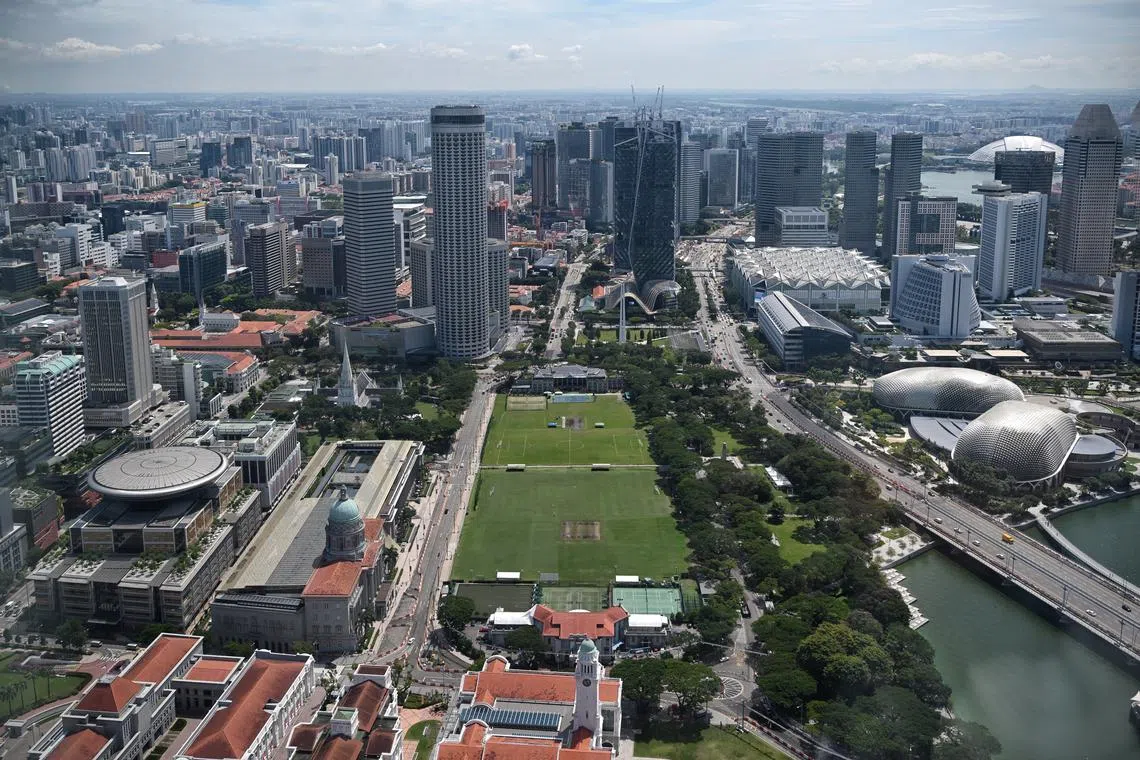Singapore among 19 countries in net-zero government initiative
Sign up now: Get ST's newsletters delivered to your inbox

Singapore recently updated its climate commitments, with the public sector aiming to reach net zero by 2045.
ST PHOTO: KUA CHEE SIONG
SHARM EL-SHEIKH, Egypt - Singapore is among 19 countries that have committed their public sectors to reach net-zero emissions by or before 2050, in an initiative launched on Thursday.
Countries that are part of the Net-Zero Government Initiative will develop a road map by COP28 in the UAE next year to show how they will achieve their net-zero targets and, where appropriate, identify interim targets to do so. They will then be required to publish their road maps.
The 19 countries include members of the European Union, Australia, Britain, Japan, New Zealand, Singapore, South Korea and the United States.
Singapore recently updated its climate commitments, with the public sector aiming to reach net zero by 2045, five years earlier than the country’s initial target of 2050.
In her opening remarks at the initiative’s launch on Thursday, Ms Brenda Mallory, chair of the US Council on Environmental Quality, said the initiative will see governments taking the lead in catalysing climate action.
“We know that national governments are frequently the largest employers, the largest electricity consumers, vehicle fleet owners, real estate holders and the purchasers of goods and services in their countries.
“As a result, efforts to green our government operations can spur demand for clean industries and technologies to accelerate innovation and in leading by example, such as lowering decarbonisation costs across all sectors,” said Ms Mallory.
As part of Singapore’s recently updated Nationally Determined Contribution – as in climate commitments under the United Nations – the Republic’s greenhouse gas emissions will reach 60 million tonnes by 2030,
Speaking at a panel discussion at the US Pavilion on Thursday, Minister for Sustainability and the Environment Grace Fu stressed the importance of countries backing their pledges
She added that the Singapore Green Plan
Underpinning the plan is the government’s sustainability initiative greengov.sg, which brings together sustainability practices in various sectors such as the built environment, mobility, health and education at a level that is more ambitious than the national targets.
“Because it’s not just about us, the public service, going green, but it is also about how we fine-tune our policies so that we are encouraging our stakeholders to move towards net zero,” said Ms Fu.
She hopes the government to be the first mover in integrating new technology into their operations. Doing so will help drive down the cost of products and services for the rest of the market.
The Netherlands, meanwhile, said its government has goals of reaching net zero by 2030 and to have a completely circular economy by 2050. New Zealand has a programme that aims to make a number of organisations within the public sector carbon-neutral from 2025.
Heavy emitters such as India and China were not included in the initiative.



